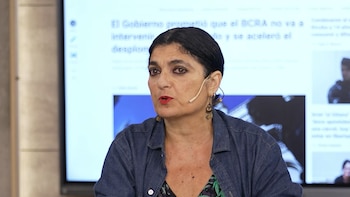
The debate on the legitimacy of the Colombian National Army operation that took place in Putumayo last March remains open. While the security forces argue that their actions were carried out under full legality, the community, with the help of investigative journalists, has denounced that the maneuver is the result of extrajudicial executions. The Office of the Procurator, which is now carrying out investigations into the facts, has in its possession two booklets with more than 300 pages containing the account of what would have happened that day.
What was initially reported is that on 28 March 11 people belonging to the dissidents of the missing FARC had been killed. However, the discovery of the body of a minor within the alleged guerrillas and that of a pregnant woman drew attention. Likewise, they highlighted the testimonies of survivors who argued that they were not guerrillas of any criminal group.
The deaths of these people occurred in the Alto Remanso village, in Puerto Leguizamo, where, according to the community, a bazaar was held. The National Army contradicted that clarification and stated that there was no party in that place and that, for its part, it was a place where drugs were negotiated. “The 11 people belong to the criminal structure of Gaor 48 (...) it was a collection center where he was trading cocaine base paste,” the institution argued.
The questions that the Attorney General's Office tries to answer, led by its delegate, Javier Sarmiento, among others, are related to who attacked whom first and whether the 11 targets were previously identified. According to that entity, although there were more than a dozen dead, only one person had been identified. The Office of the Procurator requested that “it be reported whether due to the events related to the General Inspectorate of the Military Forces or any military unit, carried out the opening of a preliminary inquiry or disciplinary investigation”.
To this end, a file was received with the preliminary inquiry opened by the Army into the controversial operation that has been alleged to have been a false positive. The record is 0/19, 2022.
The General of the National Army, Eduardo Zapateiro, has defended the operation on multiple occasions, however, it was in an interview with RCN News that he detailed that it was a totally justified action in human rights and international humanitarian law. “An operation planned and accompanied by a dominant intelligence, on the part of naval intelligence and supported by military intelligence, which was directed against a criminal structure, the Gaor 48, which calls itself 'Border Commandos',” the high command told the director of that media outlet, José Manuel Acevedo, on the 11th of April.
In that same talk, he stressed that it was not the first time that minors or pregnant women were affected in this type of operation. “They were in combat, they were in the line of the dead (...) when the troops arrived, the reconnaissance and surveillance team arrived at the security point, it was possible to see that there is a coca gathering, bazaar, whatever you want to call it, but there they were negotiating coca because at dawn all the part of the coca that they had already left negotiated and stay in the bazaar drinking beer.”
KEEP READING:
Últimas Noticias
Debanhi Escobar: they secured the motel where she was found lifeless in a cistern
Members of the Specialized Prosecutor's Office in Nuevo León secured the Nueva Castilla Motel as part of the investigations into the case

The oldest person in the world died at the age of 119
Kane Tanaka lived in Japan. She was born six months earlier than George Orwell, the same year that the Wright brothers first flew, and Marie Curie became the first woman to win a Nobel Prize

Macabre find in CDMX: they left a body bagged and tied in a taxi
The body was left in the back seats of the car. It was covered with black bags and tied with industrial tape
The eagles of America will face Manchester City in a duel of legends. Here are the details
The top Mexican football champion will play a match with Pep Guardiola's squad in the Lone Star Cup

Why is it good to bring dogs out to know the world when they are puppies
A so-called protection against the spread of diseases threatens the integral development of dogs




